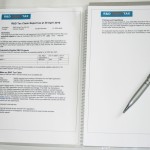 Whether trusts can make R&D tax claims has to be one of the most common issues I encounter each week. It is a common issue because accountants love to automatically set up trust structures for their clients as a way of protecting assets, and as a general rule, trusts are not allowed to make R&D tax claims.
Whether trusts can make R&D tax claims has to be one of the most common issues I encounter each week. It is a common issue because accountants love to automatically set up trust structures for their clients as a way of protecting assets, and as a general rule, trusts are not allowed to make R&D tax claims.
However, before we simply dismiss all trust entities as being ineligible for R&D tax claims, it is worth knowing that there are some circumstances where trust entities can make R&D tax claims. Here’s a discussion on how.
1) Public Trading Trusts can make R&D Tax Claims
This rule is easy and explicit in the tax legislation. However, it is unlikely to be the structure of a small business entity.
2) Trustee Companies Can Make R&D Tax Claims
If a trustee company conducts R&D activities on its own behalf and not on behalf of a trust, it will be eligible to make R&D tax claims. This requires a number of tests to be satisfied. The starting point is that the trustee company must be lodging its own Company Tax Return and holds its own ACN/TFN and is registered for GST. Next it is a requirement to show that the beneficiary of the R&D activities is the trustee company and not the trust. Intellectual Property should be owned by the trustee company. The trustee company should have its own bank account and company records. Ideally it should be the only trading entity with the trust being dormant, but it is also possible for the trustee company to be set up as an R&D company only.
AusIndustry and the ATO have released a Fact Sheet that explains the requirements in more detail.
Whether your trust structure will be eligible will depend on the facts of your situation. With the queries I receive approximately 50% find they are eligible, and the rest, unfortunately not. But of those that aren’t eligible, with the valuable information that structure is the only thing holding back their eligibility, they often act quickly with their accountant to make changes to be better set up for next year.
Here’s some tips if this is the situation you find yourself in:
1. If possible, set up a a new separate company to conduct R&D, thus avoiding all trust issues altogether
2. Before going down the path of making changes for your existing trustee company for the past financial year, ensure that the cost of these changes doesn’t outweigh any potential R&D benefit you will receive
3. Seek advice! Contact us or your local R&D consultant to get clarity, or if you require additional confirmation, head straight to the top and contact the ATO via the business info line.
R&D SmartTax is happy to help businesses or their accountants to better understand the R&D eligibility rules and how they apply to you. Feel free to contact us for any of your R&D tax queries and we will make sure you make the most of your smart ideas.






